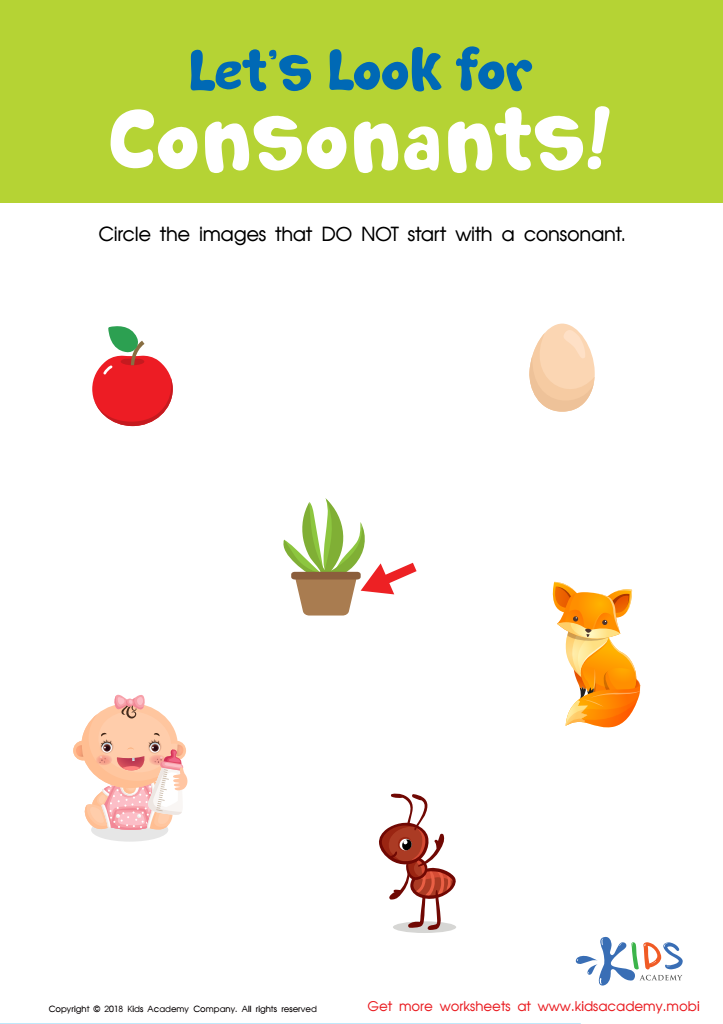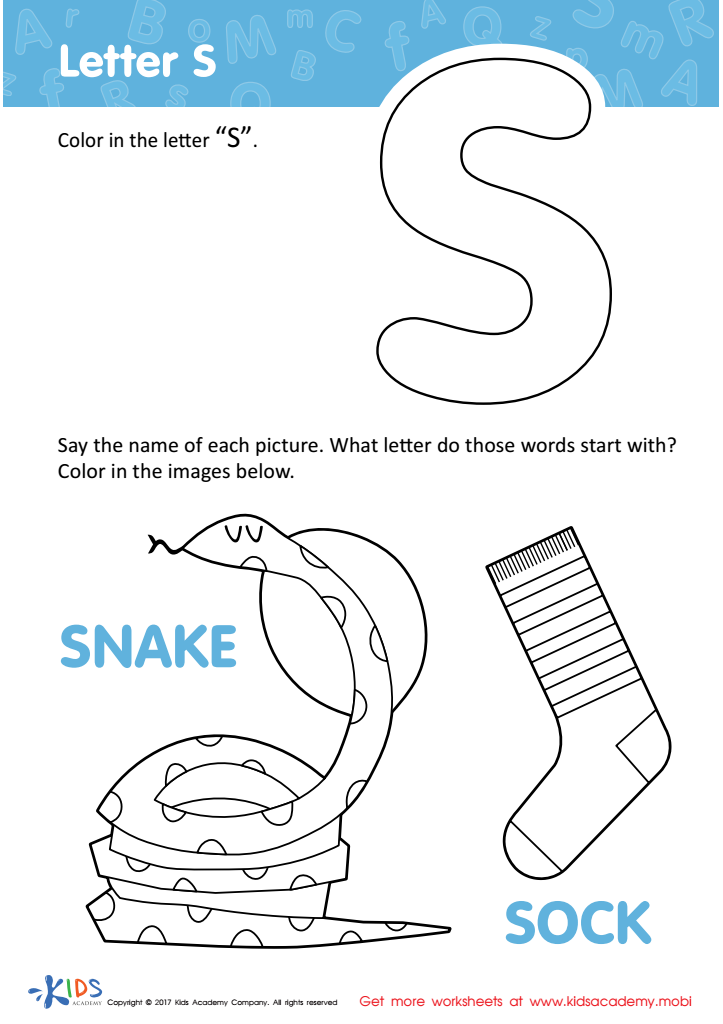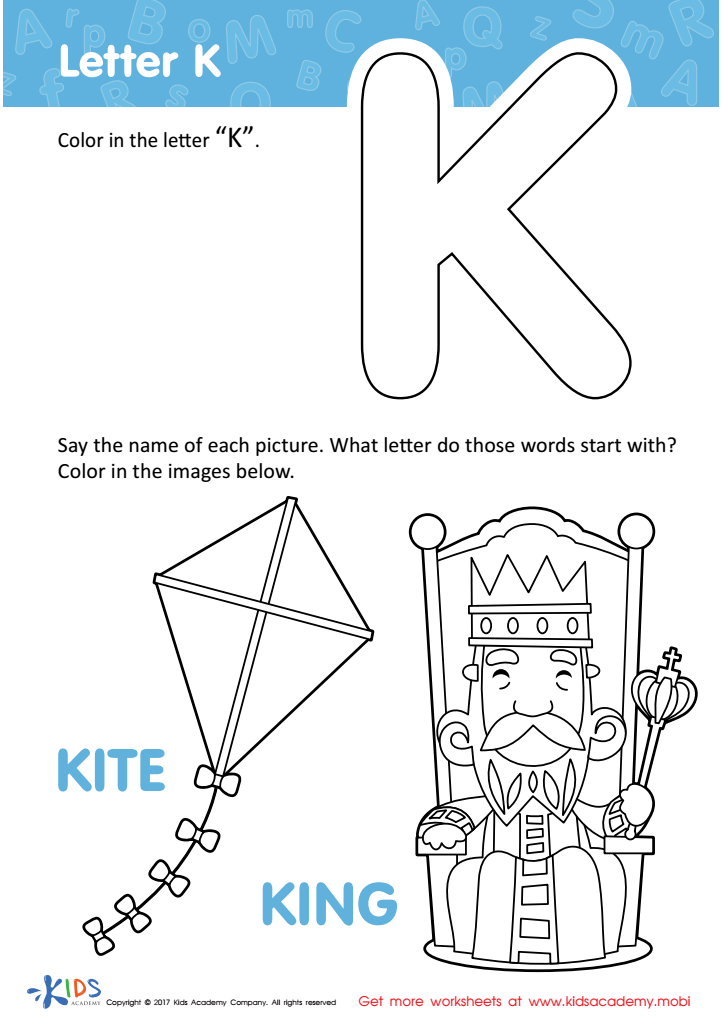Phonics enhancement Worksheets for 4-Year-Olds
3 filtered results
-
From - To
Discover engaging and educational Phonics Enhancement Worksheets designed for 4-year-olds! At Kids Academy, our carefully crafted worksheets help young learners develop essential reading skills through fun activities and interactive exercises. These resources focus on letter recognition, sounds, blending, and early word formation. Each worksheet is designed to captivate and motivate your child, turning learning into an exciting adventure. Perfect for parents and educators, our printable worksheets offer a solid foundation in phonics, fostering literacy and instilling a lifelong love for reading. Start your child’s phonics journey today with Kids Academy’s exceptional learning tools!


Let's Look for Consonants Worksheet


Letter S Coloring Sheet


Letter K Coloring Sheet
Phonics is the foundation of effective reading and writing skills, and enhancing phonics for 4-year-olds is crucial for their academic and cognitive development. At this tender age, children's brains are exceptionally receptive to learning, and phonics instruction helps them understand the relationship between letters and sounds, a fundamental component of language.
For parents and teachers, investing time in phonics enhancement means setting the stage for children's future literacy success. Phonics instruction supports vocabulary and comprehension skills, enabling children to decode new words independently. This not only boosts their confidence but also fosters a love for reading and enthusiasm for learning.
Furthermore, early phonics skills contribute to better spelling and writing. As children learn to sound out and blend letters, they develop the ability to form words and sentences with accuracy, enhancing their overall communication skills. Literacy struggles can be frustrating, but early phonics intervention can mitigate these challenges, making learning a more enjoyable experience.
In addition, early phonics education addresses educational equity. It ensures that all children, regardless of their background, have a strong start, reducing achievement gaps and promoting long-term academic success. By prioritizing phonics enhancement, parents and teachers are investing in a child's ability to succeed not just in school but in life.

 Assign to My Students
Assign to My Students





















